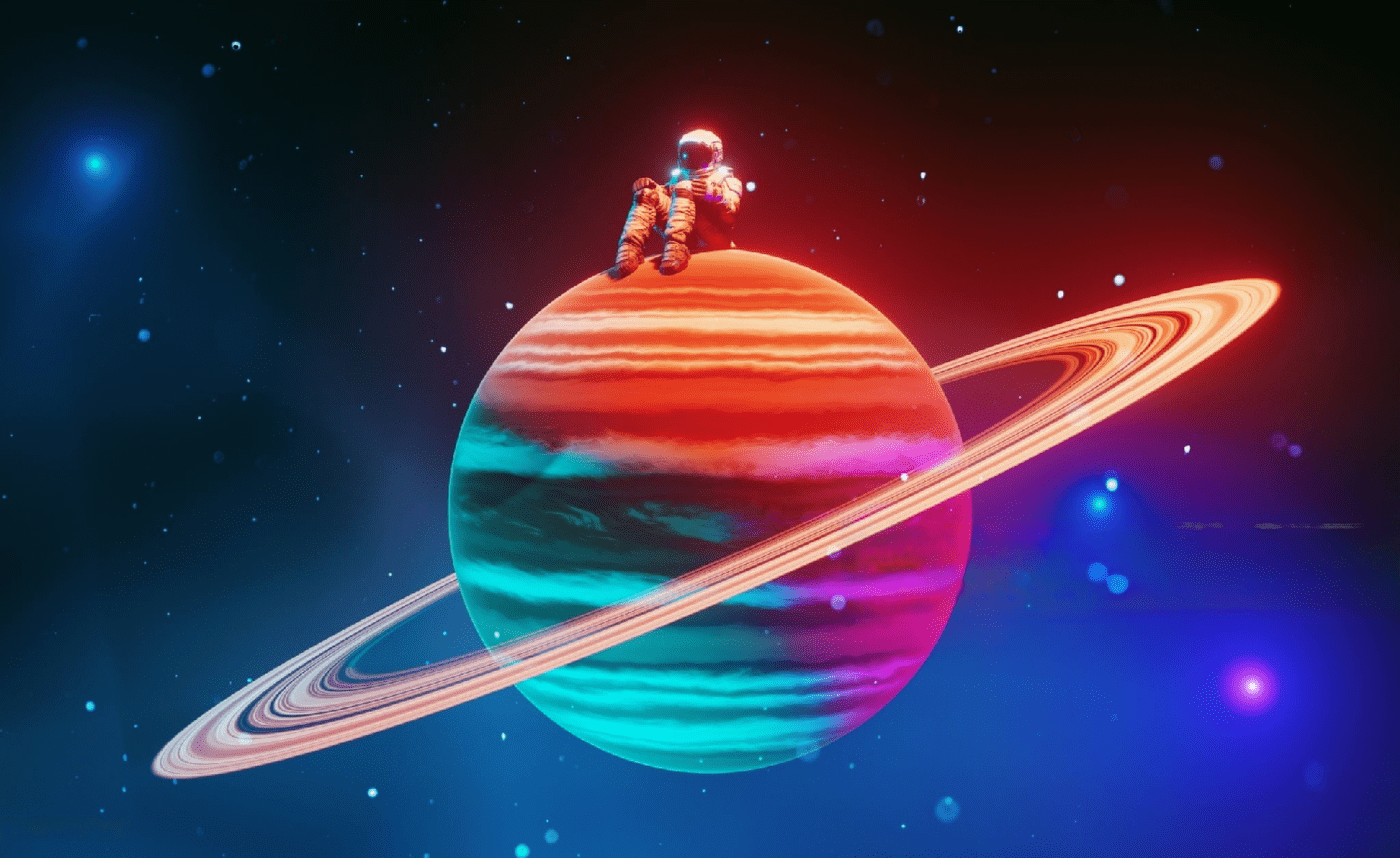Space travel is fascinating, but it’s not all excitement and adventure. Astronauts face a big challenge: their mental health. In this article, we’ll explore the importance of mental well-being during deep space missions and how artificial intelligence (AI) companions could help astronauts stay emotionally healthy.
The Isolation of Space
Imagine being in the middle of nowhere, with no one around for miles. Space, even close to Earth, feels like that – empty and lonely. William Shatner, famous as Captain Kirk from Star Trek, went to space in 2021 and expected to feel amazing. Instead, he felt incredibly sad. The difference between space’s cold emptiness and Earth’s warmth hit him hard.
Buzz Aldrin, an astronaut who walked on the moon, called it a “magnificent desolation.” He meant that the moon was beautiful but also very lonely. It looked the same for thousands of years, with no air, no life, and a pitch-black sky. This kind of isolation isn’t easy for our minds to handle, even though astronauts can adapt.
The Emotional Challenges
Most astronauts do well in space, but some struggle emotionally. NASA’s report on space shuttle missions in 2016 found that some crew members showed signs of anxiety or annoyance. Now, think about a two-year trip to Mars, where a small crew lives and works together in a tiny space. It’s like a never-ending family road trip – tempers can flare.
AI Companions: A Potential Solution
So, can AI companions help astronauts feel better in space? While AI can’t replace human friends, it can offer emotional support. NASA, along with other space organizations, is exploring the idea of using AI systems to help astronauts. These AI companions won’t just be tools; they’ll be friends in space.
One example is CIMON, a floating AI on the International Space Station. However, CIMON lacked empathy – it was more like a talking machine. But this project paved the way for better AI companions with more feelings.
Finding the Right Balance
Using AI companions in space should be based on research and evidence. Dr. Grace Whitmire, a NASA psychologist, says that we need to study how AI can help astronauts’ mental health.
On long missions to places like Mars, AI companions can provide emotional support and helpful advice. But they can’t replace human connections. During the COVID-19 pandemic, we learned how much we need real human interaction.
The Human Factor
In summary, AI companions have great potential to support astronauts emotionally during deep space missions. However, they should work alongside humans, not replace them. Our need for real connections is too important. As we explore space more, we must remember that technology can help, but it’s the human touch that truly matters.
In the vastness of space, striking the right balance between technology and humanity will ensure that astronauts stay mentally healthy on their incredible journeys.
FAQ
AI companions for astronauts are artificial intelligence systems designed to provide emotional and mental support to astronauts during deep space missions. These AI companions are programmed to assist astronauts in dealing with the unique challenges of isolation and emotional stress in space.
2. Why do astronauts need AI companions in deep space?
Astronauts in deep space face extended periods of isolation and confinement, which can have a significant impact on their mental health. AI companions are being explored as a means to mitigate the psychological challenges of space travel and provide companionship and support to astronauts.
Astronauts in deep space may experience feelings of loneliness, anxiety, and depression due to the isolation, confinement, and the stark contrast between the space environment and Earth. These emotional challenges can affect their overall well-being and mission success.
AI companions can help astronauts by offering companionship, engaging in conversations, and providing emotional support. They can also offer suggestions for coping with stress and loneliness, act as a sounding board, and assist with tasks, ultimately improving astronauts’ mental health during long missions.
5. Have AI companions been used in space missions before?
Yes, there have been experiments with AI companions in space. One notable example is CIMON, a floating AI companion used on the International Space Station. However, these early attempts have highlighted the need for AI systems to better understand and respond to astronauts’ emotional needs.
AI companions are not intended to replace human interaction but rather complement it. Human connections remain essential for astronauts’ mental well-being. AI companions can offer additional support and assistance but cannot fully replace the need for human contact.
7. What is the future of AI companions for astronauts?
The future of AI companions for astronauts depends on ongoing research and development. Space agencies like NASA and organizations are actively studying how AI can best support astronauts’ emotional health during deep space missions. As technology advances, AI companions may play a more significant role in future space exploration.
While AI companions show promise, there are challenges, such as ensuring the AI systems are empathetic and responsive to astronauts’ needs. It’s essential to strike a balance between technology and human interaction to maintain astronauts’ mental well-being effectively. Further research and testing are needed to address potential drawbacks.
